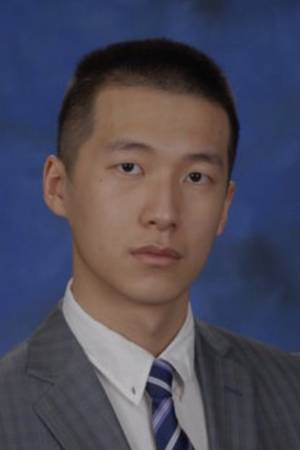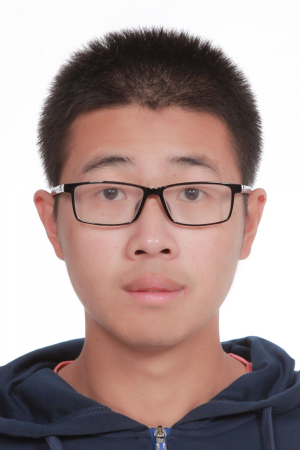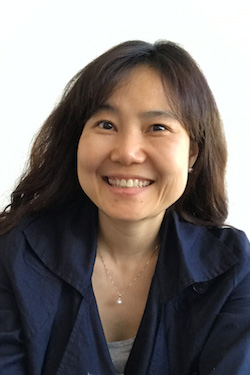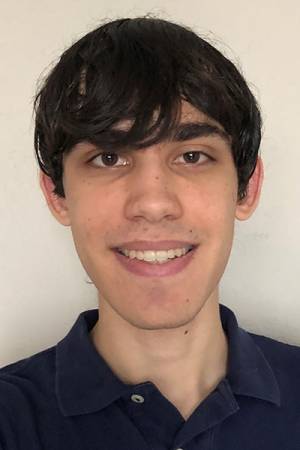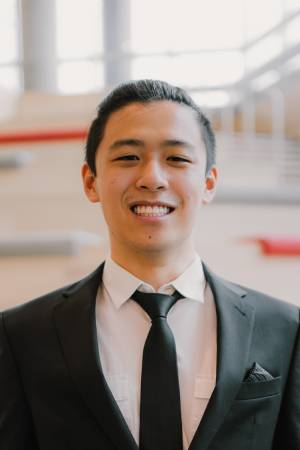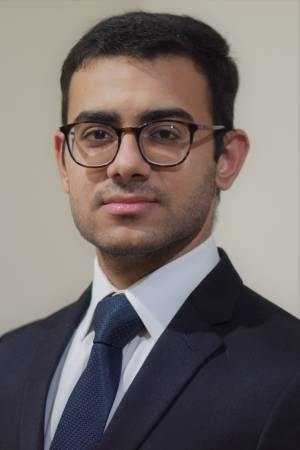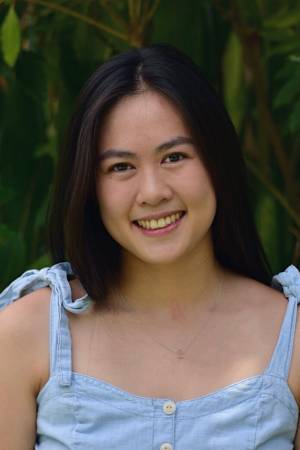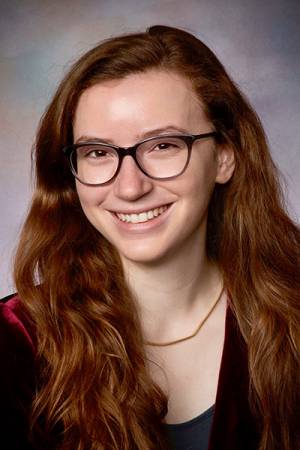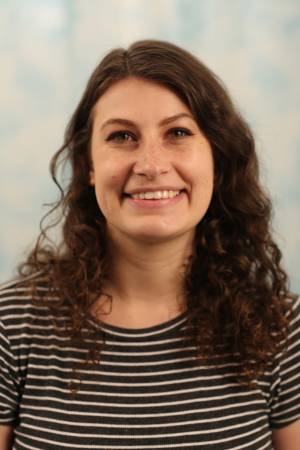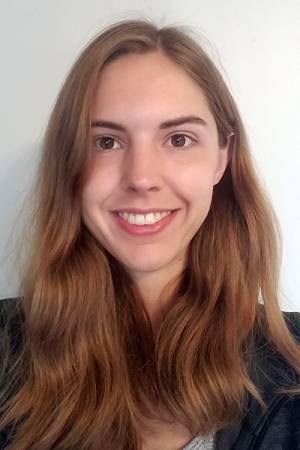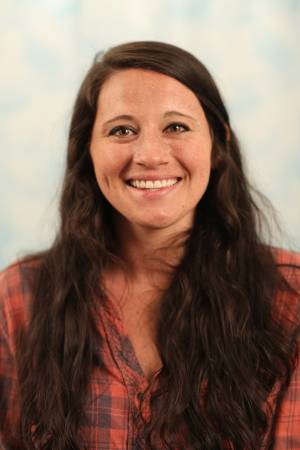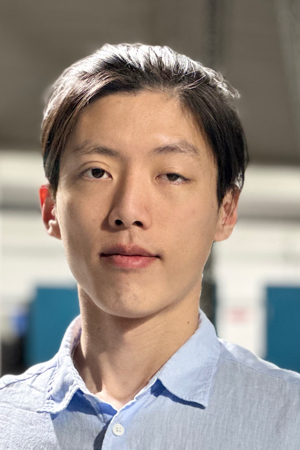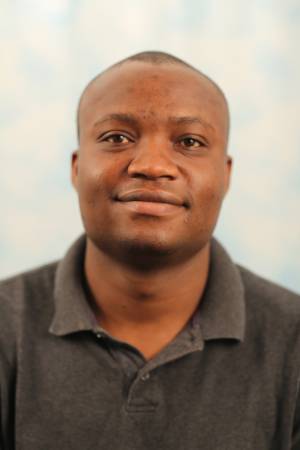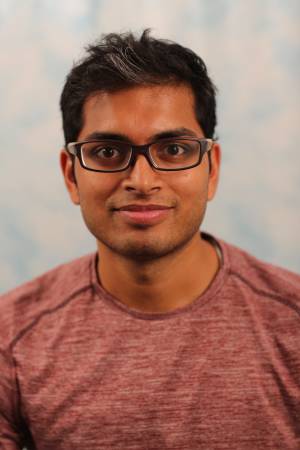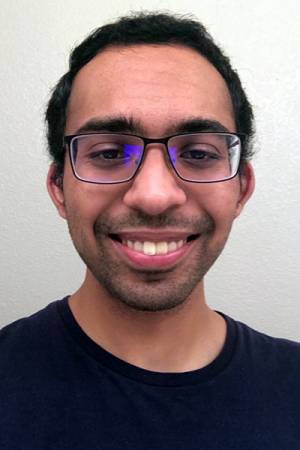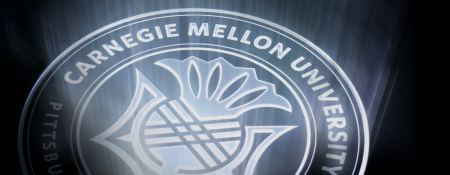MSR Thesis Talk: Ken Liu
Title: On Privacy and Personalization in Federated Learning: Analyses and Applications Abstract: Recent advances in machine learning often rely on large and centralized datasets. However, curating such data can be challenging when they hold private information, and policies/regulations may mandate that they remain distributed across data silos (e.g. mobile devices or hospitals). Federated learning (FL) [...]
Carnegie Mellon University
MSR Thesis Talk: Haolun Zhang
Title: Seeing in 3D: Towards Generalizable 3D Visual Representations for Robotic Manipulation Abstract: Despite the recent progress in computer vision and deep learning, robot perception remains a tremendous challenge due to the variations of the objects and the scenes in manipulation tasks. Ideally, a robot trying to manipulate a new object should be able to [...]
MSR Thesis Talk: Muyang Li
Title: Efficient Spatially Sparse Inference for Conditional GANs and Diffusion Models Abstract: During image editing, existing deep generative models tend to re-synthesize the entire output from scratch, including the unedited regions. This leads to a significant waste of computation, especially for minor editing operations. In this work, we present Spatially Sparse Inference (SSI), a general-purpose technique [...]
3D-aware Conditional Image Synthesis
Abstract: We propose pix2pix3D, a 3D-aware conditional generative model for controllable photorealistic image synthesis. Given a 2D label map, such as a segmentation or edge map, our model learns to synthesize a corresponding image from different viewpoints. To enable explicit 3D user control, we extend conditional generative models with neural radiance fields. Given widely-available posed [...]
Promoting Human Creativity with FRIDA: Framework and Robotics Initiative for Developing Arts
ABSTRACT: FRIDA, a reference to the vibrant painter Frida Kahlo, stands for a Framework and Robotics Initiative for Developing Arts to promote human creativity. FRIDA supports intuitive ways for people to collaboratively create artworks including natural language, images, and sounds. Because FRIDA is for real-world arts, our work is uniquely different from digital art tools [...]
RI Faculty Business Meeting
Meeting for RI Faculty. Discussions include various department topics, policies, and procedures. Generally meets weekly.
Robotic Climbing for Extreme Terrain Exploration
Abstract: Climbing robots can investigate scientifically valuable sites that are inaccessible to conventional rovers due to steep terrain features. Robots equipped with microspine grippers are particularly well-suited to ascending rocky cliff faces, but existing designs are either large and slow, or limited to relatively flat surfaces such as buildings. We have developed a novel free-climbing [...]
MSR Thesis Talk: Rohan Zeng
Title: Spectral Unmixing and Mapping of Coral Reef Benthic Cover Abstract: Coral reefs are important to the global ecosystem and the local communities and wildlife that rely on the habitat they create. However, coral reefs are also in critical and rapid decline: reefs have degraded over recent decades and what remains is at increasing risk [...]
Generative modeling: from 3D scenes to fields and manifold
Abstract: In this keynote talk, we delve into some of our progress on generative models that are able to capture the distribution of intricate and realistic 3D scenes and fields. We explore a formulation of generative modeling that optimizes latent representations for disentangling radiance fields and camera poses, enabling both unconditional and conditional generation of 3D [...]
MSR Thesis Talk: Ashwin Misra
Title: Learn2Plan: Learning variable ordering heuristics for scalable task planning Abstract: Traditional approaches to planning attempt to transform a system into a goal state by applying specific actions in a specific order. In these methods, there is an exponential search space due to considering many possible actions at every decision point. Hierarchical Task Networks use incremental [...]
MSR Thesis Talk: Andrew Jong
Title: Robot Information Gathering for Dynamic Systems in Wildfire Scenarios Abstract: The monitoring of complex dynamic systems, such as those encountered in disaster response, search and rescue, wildlife conservation, and environmental monitoring, presents the fundamental challenge of how to track efficiently with limited resources and partial observability. This thesis presents algorithms and techniques for robotic [...]
Carnegie Mellon University
Visual Dataset Pipeline: From Curation to Long-Tail Learning
Abstract: Computer vision models have proven to be tremendously capable of recognizing and detecting several real-world objects: cars, people, pets. These models are only possible due to a meticulous pipeline where a task and application is first conceived followed by an appropriate dataset curation that collects and labels all necessary data. Commonly, studies are focused [...]
MSR Thesis Talk: Erin Wong
Title: Edge Detection by Centimeter Scale Low-Cost Mobile Robots Abstract: In Search and Rescue (SaR) efforts after natural disasters like earthquakes, the primary focus is to find and rescue people in building rubble. These rescue efforts could put first responders at risk and are slow due to the unstable nature of the environment. Robotic solutions [...]
Multi-Objective Ergodic Search for Dynamic Information Maps
Abstract: Robotic explorers are essential tools for gathering information about regions that are inaccessible to humans. For applications like planetary exploration or search and rescue, robots use prior knowledge about the area to guide their search. Ergodic search methods find trajectories that effectively balance exploring unknown regions and exploiting prior information. In many search based [...]
Observing Assistance Preferences via User-controlled Arbitration in Shared Control
Abstract: What factors influence people’s preferences for robot assistance during human-robot collaboration tasks? Answering this question can help roboticists formalize definitions of assistance that lead to higher user satisfaction and increased user acceptance of assistive technology. Often in human robot collaboration literature, we see assistance paradigms that aim to optimize task success metrics and/or measures [...]
RI Faculty Business Meeting
Meeting for RI Faculty. Discussions include various department topics, policies, and procedures. Generally meets weekly.
Sparse-view 3D in the Wild
Abstract: Reconstructing 3D scenes and objects from images alone has been a long-standing goal in computer vision. We have seen tremendous progress in recent years, capable of producing near photo-realistic renderings from any viewpoint. However, existing approaches generally rely on a large number of input images (typically 50-100) in order to compute camera poses and [...]
Safely Influencing Humans in Human-Robot Interaction
Abstract: Robots are becoming more common in industrial manufacturing because of their speed and precision on repetitive tasks, but they lack the flexibility of human collaborators. In order to take advantage of both humans’ and robots’ abilities, we investigate how to improve the efficiency of human-robot collaborations by making sure that robots both 1. stay [...]
Inductive Biases for Learning Long-Horizon Manipulation Skills
Abstract: Enabling robots to execute temporally extended sequences of behaviors is a challenging problem for learned systems, due to the difficulty of learning both high-level task information and low-level control. In this talk, I will discuss three approaches that we have developed to address this problem. Each of these approaches centers on an inductive bias [...]
Estimating Robustness using Proxies
ABSTRACT: This talk covers some of our recent explorations on estimating the robustness of black-box machine learning models across data subpopulations. In other words, if a trained model is uniformly accurate across different types of inputs, or if there are significant performance disparities affecting the different subpopulations. Measuring such a characteristic is fairly straightforward if [...]
Analogy-Forming Transformers for Few-Shot 3D Parsing
Abstract: How do we build agents that can fast generalize to novel scenarios given only a single example? In this talk, I will present analogy-forming transformers, a semi-parametric model that segments 3D object scenes by retrieving related memories and predicting analogous part structures for the input. This enables a single neural network to continually learn [...]
Range-based Gaussian Process Maps for Mobile Exploration Robots
Abstract: Mobile robots exploring unknown, natural environments with limited communication must map their surroundings using onboard sensors. In this context, terrain mapping can rely on Gaussian process models to incorporate spatial correlations and provide uncertainty estimates when predicting ground height - however, these models fail to account for the oblique viewpoint of a sensor on [...]
Learning Exploration Strategies to Solve Real-World Marble Runs
Abstract: Tasks involving locally unstable or discontinuous dynamics (such as bifurcations and collisions) remain challenging in robotics, because small variations in the environment can have a significant impact on task outcomes. In this talk, we present a robot system that we developed to evaluate learning algorithms on real-world physical problem solving tasks which incorporate these [...]
Beyond NeRF Underwater: Learning Neural Reflectance Fields for True Color Correction of Marine Imagery
Abstract: Underwater imagery often exhibits distorted coloration as a result of light-water interactions, which complicates the study of benthic environments in marine biology and geography. In this research, we propose an algorithm to restore the true color (albedo) in underwater imagery by jointly learning the effects of the medium and neural scene representations. Our approach [...]
RI Faculty Business Meeting
Meeting for RI Faculty. Discussions include various department topics, policies, and procedures. Generally meets weekly.
Carnegie Mellon University
Optimization of Small Unmanned Ground Vehicle Design using Reconfigurability, Mobility, and Complexity
Abstract: Unmanned ground vehicles are being deployed in increasingly diverse and complex environments. With modern developments in sensing and planning, the field of ground vehicle mobility presents rich possibilities for mechanical innovations that may be especially relevant for unmanned systems. In particular, reconfigurability may enable vehicles to traverse a wider set of terrains with greater [...]
Force-Torque Sensors – Calibration & Estimation
Abstract: Wrist force-torque sensors were among the first proprioception sensors to be developed when robotics emerged as a field. They are now a mature technology already used in structured industrial applications like sanding and drilling. While they provide essential feedback in many manipulation algorithms, they do not garner as much excitement as exteroception sensors like [...]
Optimized Tradeoffs for Differentially Private Majority Ensembling
Abstract: Inspired by the common subtask of ensembling or calibrating private models, we study the problem of computing an m*epsilon-differentially private majority of K epsilon-differentially private algorithms for m < K. We introduce a general framework to compute the private majority via Randomized Response (RRM) with a data-dependent noise function gamma that subsumes any non-trivial [...]
Carnegie Mellon University
Spectral Mapping using Simple Sensors for Micro-Explorers
Abstract: Spectral mapping is an essential task in exploration as it expands our understanding of material composition in an explored region. Although imaging spectrometers are ideal for obtaining spectra to construct spectral maps, their large size, high power consumption, and operational complexity make them impractical for small rovers and limited missions. In contrast, RGB cameras [...]
Latent-NeRF for Shape-Guided Generation of 3D Shapes and Textures
Abstract: In this talk, I will focus on presenting my recent work which will be presented at CVPR in less than two months. Text-guided image generation has progressed rapidly in recent years, inspiring major breakthroughs in text-guided shape generation. Recently, it has been shown that using score distillation, one can successfully text-guide a NeRF model to [...]
Simulation-driven vision-based tactile sensor design using Physics Based Rendering
Abstract: Touch is an essential sensing modality for making autonomous robots more dexterous and works collaboratively with humans. With the advent of vision-based tactile sensors, roboticists have tried to incorporate tactile sensors in various robot structures for various robotic manipulation tasks to increase robustness, precision, and reliability. However, the design of vision-based tactile sensors is [...]
Efficient Interactive Learning with Unobserved Confounders
Abstract: Interactive learning systems like self-driving cars, recommender systems, and large language model chatbots are becoming increasingly ubiquitous in everyday life. From a machine learning perspective, the key technical challenge underlying such systems is that rather than simple prediction on i.i.d. data, an interactive learner influences the distribution of inputs it sees via the choices [...]
Carnegie Mellon University
Towards Reconstructing Non-rigidity from Single Camera
Abstract: In this talk we will discuss how to infer 3D from images captured by a single camera, without assuming the target scenes / objects being static. The non-static setting makes our problem ill-posed and challenging to solve, but is vital in practical applications where target-of-interest is non-static. To solve ill-posed problems, the current trend [...]
SCS Master’s Diploma Ceremony followed by Reception
Ceremony: 11:30 a.m. Auditorium, Soldiers & Sailors Memorial Hall & Museum 4141 Fifth Avenue, Pittsburgh, PA 15213 Reception: Following ceremony Grand Ballroom, Soldiers & Sailors Memorial Hall & Museum 4141 Fifth Avenue, Pittsburgh, PA 15213
SCS PhD Hooding Ceremony followed by Reception
SCS PhD Hooding Ceremony: 11 a.m. Kresge Theatre, College of Fine ArtsReception: Following ceremony Gates Hillman Center, 6th floor
The President’s Reception in honor of CMU’s Doctoral Candidates
Commencement Ceremony
UG Diploma Ceremony followed by Reception
Navigating to Objects in the Real World
Abstract: Semantic navigation is necessary to deploy mobile robots in uncontrolled environments like our homes, schools, and hospitals. Many learning-based approaches have been proposed in response to the lack of semantic understanding of the classical pipeline for spatial navigation, which builds a geometric map using depth sensors and plans to reach point goals. Broadly, end-to-end [...]
